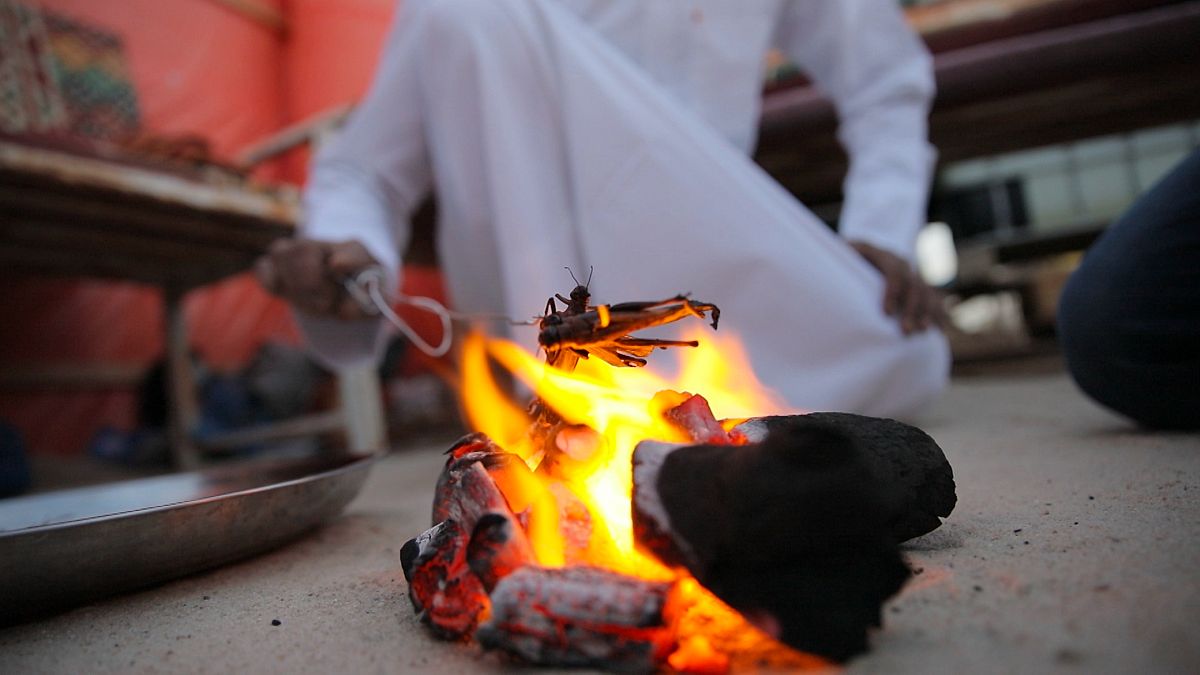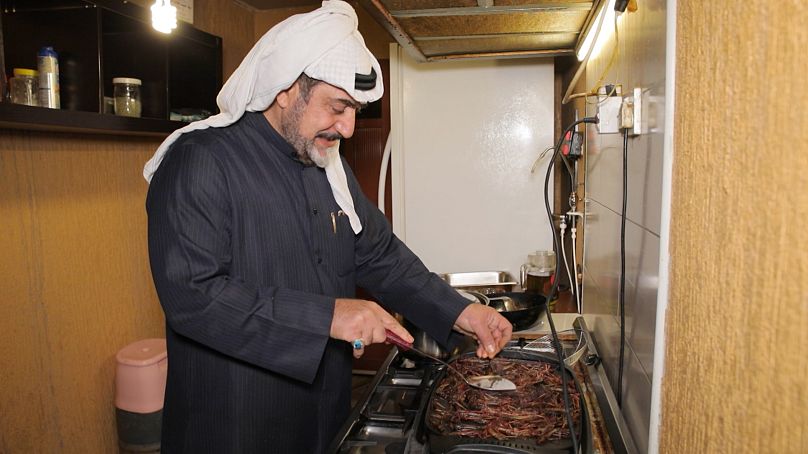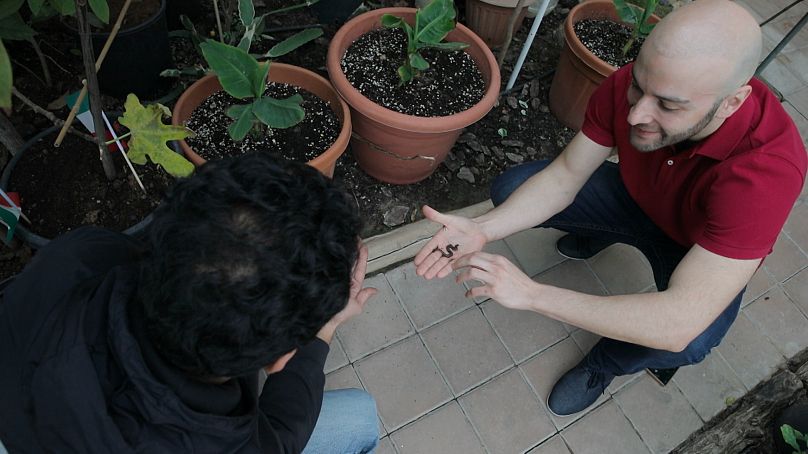Since January, many farmers in East Africa have seen their land besieged by swarms of hundreds of billions of locusts.
Since January, many farmers in East Africa have seen their land besieged by swarms of hundreds of billions of locusts.
Threatening both harvests and livelihoods, waves of locusts have also struck Argentina, Paraguay and Pakistan this year.
In the Gulf state of Kuwait, people are reviving the age-old food practice of eating the destructive insects.
Forty-one-year-old Adil Al Hareidi has been gathering and selling the creatures for the past 22 years.
He charges around $30 for one bag of live locusts at Souq al Faga, or the Truffle Market, in Kuwait City.
Old habits
Despite recent dips in popularity, the eating of locusts was once commonplace in Kuwait, Yemen and Saudi Arabia, Al Hareidi told Inspire Middle East’s Salim Essaid.
“It’s something delicious from the time of our ancestors,” recalled the locust seller, explaining how the insects would be stored for sustenance for up to a year.
High-quality locusts haven’t been found in Kuwait since the 1970s due to urbanization and the use of farming pesticides, notes Al Hareidi.
As a result, and to meet demand, he travels weekly to Saudi Arabia to source the short-horned desert species.
Female locusts, known as ‘mukun’ in the Kuwaiti dialect, tend to be larger and meatier than their male counterparts.
They also fetch a higher price on the open market, according to Al Hareidi.
Crunching critters
Sixty-five-year-old Kuwaiti Habib Khan has been eating locusts weekly since he was a boy.
Female locusts are his preference, due to their yellow eggs, which he says gives them a sweeter taste.
Khan says that cooking them is simple, however, containing the agile hoppers in his boiling pot of water can be a challenge.
His method is to simmer the creatures for around 30 minutes, before roasting or grilling them to a crisp.
Khan also has a favourite family recipe, which involves ground roasted locusts mixed with dates and sesame paste. The taste is one he likens to pistachio in its sweet nuttiness.
Younger Kuwaitis, occasionally favour eating locusts this way, he told Euronews.
“Now, people are scared. The new generation doesn’t like to eat locusts,” remarked Khan, adding that he hopes the food trend will come back into fashion.
Edible insects
According to a United Nations report, which identified edible insects as one potential solution to food security, at least two billion people globally eat insects.
The UN added that the creatures are a source of high-quality protein, vitamins and amino acids for humans.
They’re also supposedly good for the planet, using much less land and water to grow than traditional livestock.
Moreover, there are around 2,000 edible kinds of the alternative food source.
In Europe, adding a twist to traditional gastronomy, mealworms are being prepared in some French restaurants.
Culinary encounters with insects, otherwise known as ento-experiences, are also reportedly catching on in Italy.
Sanitary engineers
Kuwaiti rancher Khalid Al Younis believes that worms have potential beyond cooking.
He’s using his army of annelids to try and develop his country’s arid agricultural land into farmable pastures.
Through his YouTube channel and Instagram page, he’s encouraging younger generations to do the same at home, by using their recyclable organic trash.
“Five years ago, we faced a lot of people that were grossed out by the idea of worms - and many of them blocked us on social media,” says Al Younis.
However, once many of them learned about vermicomposting, or the process of decomposing waste using worms, it was a different story.
“Their minds were changed and they became customers,” says the young man nicknamed ‘Abou Al Doud’, or the ‘Father of Worms’, by his fans. “And they would buy worms for their homes.
SEEN ON SOCIAL MEDIA: LOCUST HUNT
Essa posed with this grasshopper which he found in the Kuwaiti desert.



